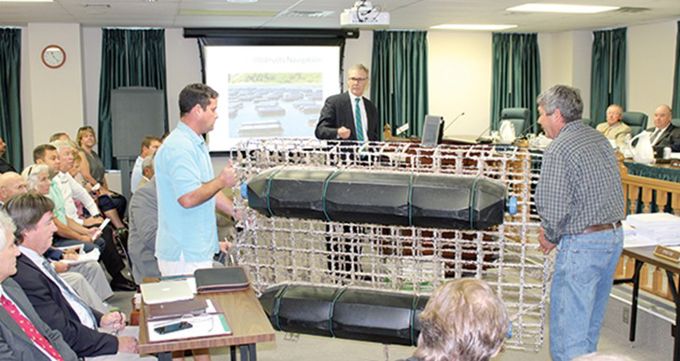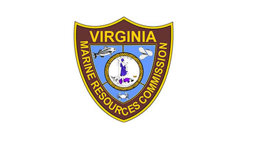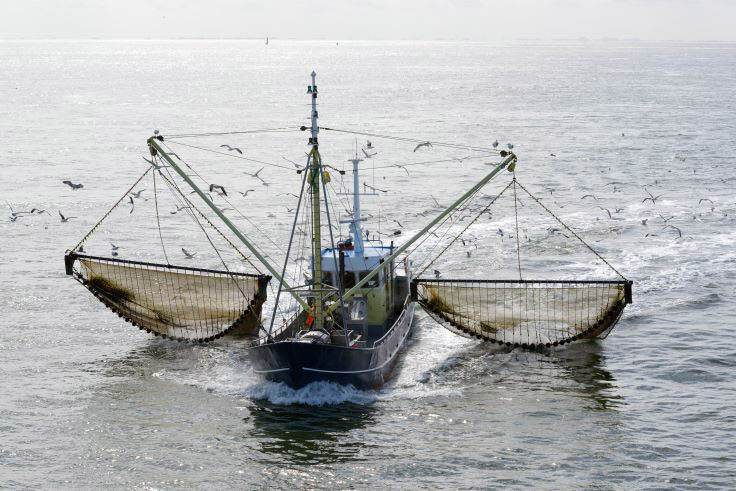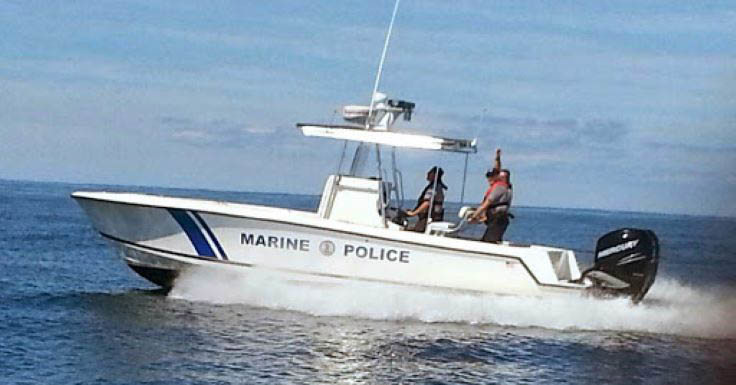
Virginia Marine Resources Commission
What is the Virginia Marine Resources Commission (VMRC)?

The Virginia Marine Resources Commission is a state agency charged with overseeing Virginia's marine and aquatic resources, and its tidal waters and homelands. One of the primary functions of the Commission is to zone water areas for outdoor swimming, for oyster and clamming grounds, and for fishing use.
What does the VMRC Do?
The Virginia Marine Resources Commission (VMRC) manages Virginia's marine resources in the territorial sea, tidal rivers and streams below the fall line.
Virginia Marine Resources Commission Overview
The Virginia Marine Resources Commission (“VMRC”) exercises its authority over the marine resources of Virginia, from the territorial sea to the fall line of all Virginia’s tidal rivers and streams. In addition to serving as Virginia’s “landlord” for all state-owned bottomland, the VMRC also has jurisdiction in these areas over all commercial fishing, all marine fish, marine shellfish, marine organisms and habitat. The VMRC thus decides whether a person can build a pier or catch a fish anywhere in the expanse of water beginning at the territorial sea of Virginia, and extending inland to the fall line of Virginia’s tidal rivers and streams.
The VMRC's History
The VMRC's vast authority had its beginnings in 1864 when Virginia created the Virginia Oyster Police Navy to respond to open conflict between watermen in the Chesapeake Bay over boundaries and rights to oyster beds. Virginia supplemented its infant water borne law enforcement force in 1875 when the Virginia General Assembly enacted a law providing for the appointment of a three-member Fish Commission (also called the Fisheries Commission). The Fish (or Fisheries) Commission had only an advisory function: reviewing conditions in the fisheries and recommending fisheries legislation to the Governor and General Assembly.

(Split Second Stock / shutterstock.com)
A few years later, in 1897, the General Assembly placed the Virginia Oyster Police Navy under the jurisdiction of the Fisheries Commission. Throughout the 20th century the General Assembly consolidated authority within the Fisheries Commission at a steady march. In 1920 the General Assembly gave it full control of oyster administration. In 1962 the General Assembly placed state-owned bottomland under jurisdiction of the Fisheries Commission. The name changed to the Virginia Marine Resources Commission in 1968. In 1972 the General Assembly entrusted to the VMRC preservation of Virginia’s tidal wetlands. In the 1980’s, Virginia’s coastal primary sand dunes and beaches were placed under VMRC authority. Additionally, in 1984, the General Assembly enacted legislation transferring responsibility for fisheries management from the legislature to the VMRC.
VMRC's Responsibilities

Today, the VMRC carries out its responsibility to manage Virginia’s marine resources in the territorial sea and in the tidal rivers and streams below the fall line by holding hearings, issuing permits, licenses, leases, regulations and guidance documents, imposing fines on violators, and using its force of Marine Police Officers to enforce its mandates. The VMRC carries out these functions under the supervision of a full-time Commissioner plus eight part-time Associate Commissioners, all of whom are political appointees of the Governor. One member of this 9-person body is required by law to be a licensed and registered commercial fisherman who has earned his (or her) livelihood in that pursuit for the past five or more years. The law requires that another member must be a recreational fisherman, not employed by the commercial fishing industry.
Need help with the VMRC?
Looking for help with Virginia Marine Resources Commission related issues? Our team has the experience to help you navigate the VMRC. Contact us to schedule your consultation.
